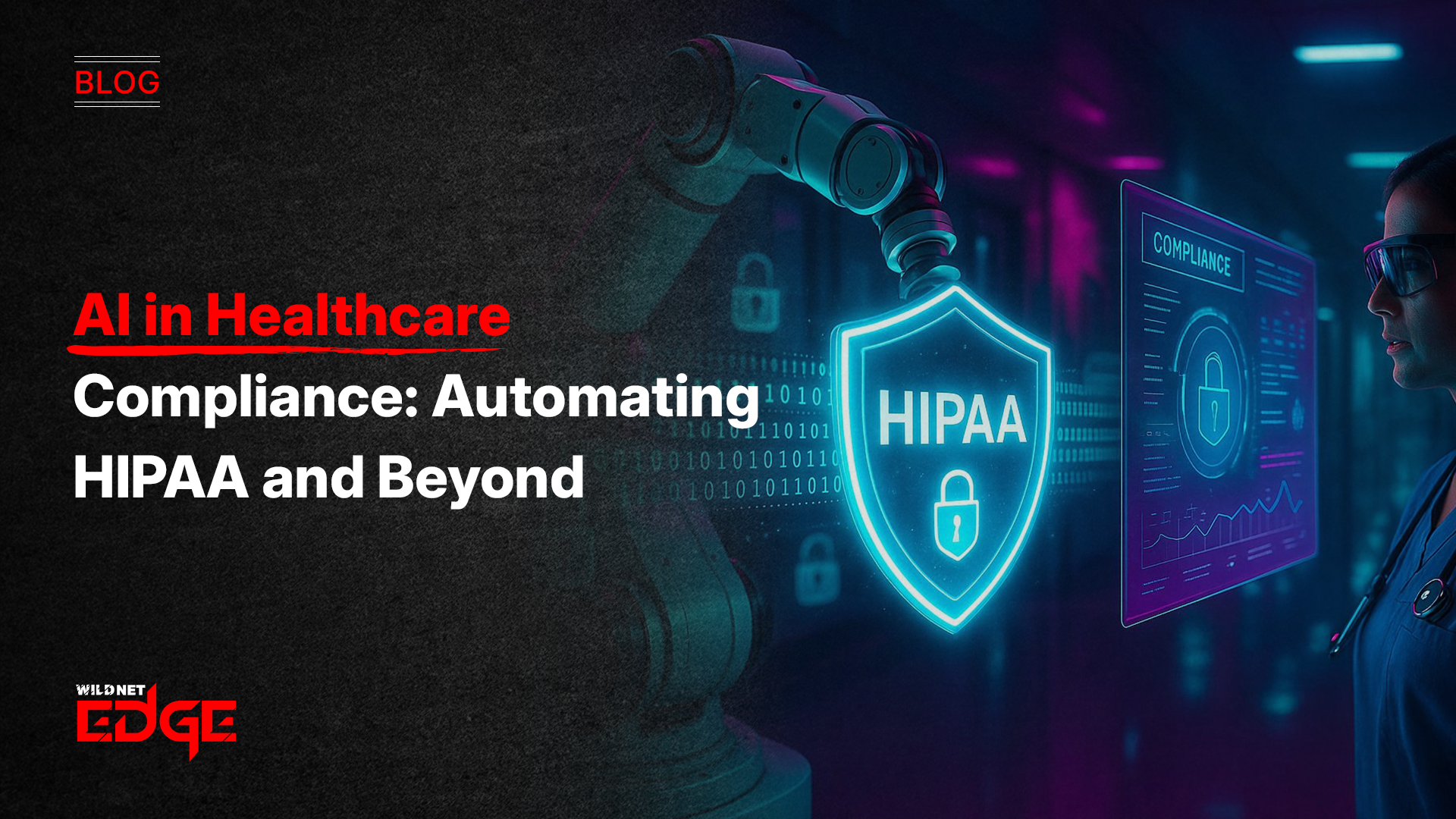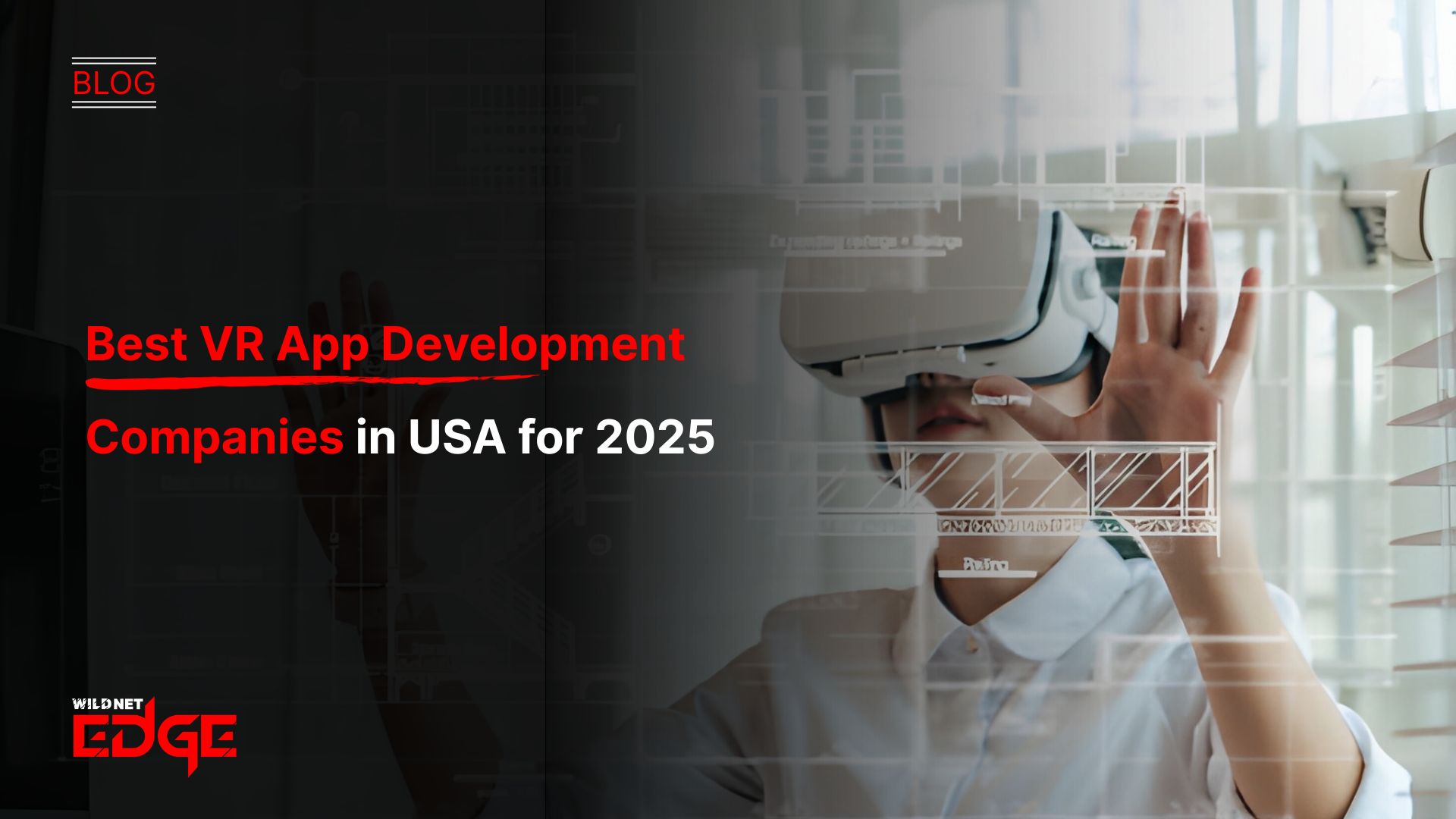When we talk about AI in healthcare, most people think about diagnostics, robotic surgeries, or chatbots for patient support. But there’s one area AI is quietly transforming: compliance.
Staying compliant with HIPAA and other regulations is critical, but it’s also costly, manual, and error-prone. That’s exactly where AI steps in, automating documentation, flagging risks, and ensuring continuous monitoring without burning out your compliance teams.
In this blog, I’ll break down how AI is reshaping healthcare compliance, what’s possible today, and what’s next.
Why Traditional Compliance Fails in the Age of AI in Healthcare
Compliance in healthcare has always been a necessary burden. But with digital systems handling everything from patient records to billing, the old ways of staying compliant just don’t hold up anymore.
Here’s where traditional methods fall short:
- Manual Audits Aren’t Scalable
Hospitals and healthcare providers generate massive amounts of data every day. Manual reviews of logs, access history, and documentation simply can’t keep up. - Human Error Is a Constant Risk
Even the most experienced compliance teams miss things, especially when they’re buried under repetitive tasks. One oversight can lead to serious fines or even patient safety issues. - Reactive Compliance = Delayed Risk Detection
Traditional systems identify issues after something goes wrong. But by then, the breach has already happened. There’s no early warning system. - Documentation Takes Time Away from Care
Doctors and staff spend hours on compliance documentation, time that could be spent on patient care. Burnout rises, quality drops. - Lack of Real-Time Visibility
Without real-time insights into who accessed what, when, and why, it’s hard to prove compliance, let alone enforce it proactively.
This isn’t just inefficient; it’s risky. And with patient data breaches and regulatory scrutiny increasing, the cracks in traditional compliance frameworks are widening.
Role of AI in Healthcare Compliance Automates the Heavy Lifting
AI in healthcare isn’t just about diagnosis or robotics; it’s becoming the backbone of intelligent compliance.
Here’s how AI is transforming compliance from a reactive checklist into a proactive system:
- Real-Time Monitoring and Alerts
AI systems can track user behavior across EHRs, billing systems, and data portals in real time. The moment something unusual happens, like unauthorized access to patient data, it triggers alerts before the damage spreads. - Automated Risk Scoring
Instead of waiting for auditors, AI models assign dynamic risk scores to users, departments, or actions. That means compliance teams can focus on high-risk activities first, not dig through noise. - Intelligent Audit Trails
AI doesn’t just track activity. It organizes it. It creates comprehensive, timestamped audit trails that are easy to review, making regulatory reporting faster and bulletproof. - Natural Language Processing (NLP) for Documentation
AI can summarize compliance logs, flag missing disclosures, or even auto-fill repetitive forms. With NLP, it reads like a human, but works at machine speed. - Predictive Compliance Analytics
Machine learning can detect patterns in behavior or processes that historically led to non-compliance. It’s like having a compliance radar that spots trouble before it becomes a headline. - HIPAA-Specific Policy Enforcement
From auto-enforcing minimum necessary access to identifying PHI-sharing risks in emails or messages, AI can enforce HIPAA in real time, not just during audits.
This isn’t future talk. These AI-driven compliance systems are already reducing investigation time, lowering the cost of audits, and helping teams prevent fines before they happen.
Benefits of AI in Healthcare Compliance That Go Beyond Efficiency
Most healthcare providers look to AI for speed or automation, and yes, AI in healthcare compliance does both. But if you stop there, you’re missing the bigger payoff.
Here’s what smart organizations are actually gaining:
- Reduced Human Error
Compliance breaches often stem from overlooked details or manual mistakes. AI removes that risk by enforcing policies consistently, every single time. - Stronger Patient Trust
When patients know their data is actively protected, not just locked behind passwords, it builds credibility. AI ensures that only the right eyes see the right data. - Faster Regulatory Adaptation
Regulations like HIPAA evolve. AI systems can adapt faster than human workflows. They update rulesets, retrain models, and help you stay compliant, even as laws shift. - Scalability Without Compromise
Whether you’re managing 10 or 10,000 patient records, AI scales compliance without extra headcount. It gives growing healthcare providers a path to expand securely. - Audit Readiness at Any Time
No more scrambling before an inspection. AI in healthcare compliance keeps everything logged, organized, and accessible, so you’re always ready for scrutiny. - Cost Savings Through Prevention
AI helps detect potential violations early, preventing penalties and protecting revenue. It’s not just a compliance tool, it’s a financial safeguard.
The takeaway? AI isn’t just optimizing compliance; it’s reshaping how healthcare providers earn trust, stay competitive, and grow safely.
Applications of AI in Healthcare Compliance You Shouldn’t Ignore
AI is already transforming compliance from a manual burden into a smart, adaptive system. But where exactly is it making an impact?
Here are the key applications of AI in healthcare compliance you should be paying attention to:
- Real-Time Data Monitoring
AI continuously scans clinical and administrative systems for irregularities, flagging suspicious access, unusual billing patterns, or outdated consent forms before they become violations. - Automated Documentation and Coding
AI tools help clinicians document procedures and assign the correct medical codes with high accuracy, reducing errors and ensuring coding compliance with standards like ICD-10 and CPT. - Access Control and Identity Verification
AI ensures the right person accesses the right data at the right time, using intelligent access protocols that go beyond basic login credentials, including biometric verification and behavioral tracking. - Compliance Chatbots for Training and Support
Instead of outdated annual training modules, AI-powered bots offer real-time guidance to staff. Think: a digital compliance officer that answers HIPAA questions instantly, in context. - Predictive Risk Assessment
AI models can analyze historical audit data and workflows to predict where compliance issues are likely to arise. You get proactive alerts before a breach or violation occurs. - Automated Audit Trails
Every access, edit, and action can be logged automatically, with AI organizing and summarizing the data for fast audit-readiness.
These applications aren’t futuristic. They’re already here, and if you’re not integrating them into your compliance strategy, you’re falling behind.
The Future of AI in Healthcare Compliance: Beyond HIPAA
HIPAA may be the gold standard today, but compliance in healthcare is quickly evolving, and AI is leading the charge.
We’re moving toward a future where regulatory landscapes shift faster than ever, with new mandates around data transparency, interoperability, algorithmic bias, and patient rights. Static compliance programs can’t keep up. But AI-driven systems can.
Here’s what to expect next:
- Global Standards, Local Enforcement
As healthcare systems grow across borders, AI will help organizations comply with multiple data privacy regulations, from HIPAA to GDPR, through adaptive frameworks that adjust based on jurisdiction. - Bias Detection in Clinical AI Models
As more healthcare decisions are supported by AI, compliance will extend to ensuring these systems are fair and equitable. AI will soon be used to audit other AI for compliance with ethical and legal standards. - AI in Patient Consent and Data Portability
Patients will gain more control over their data. AI will facilitate dynamic consent models, letting patients decide who sees what, when, and ensuring compliance with emerging consent-driven regulations. - Automated Policy Updates
AI will monitor legal databases and government sites to detect changes in laws and standards, then automatically update internal policies and workflows. - Trust-Driven Compliance Architecture
Compliance won’t just be about checking boxes. It’ll be about earning and maintaining patient trust. AI systems will help monitor reputational risk, media sentiment, and public trust indicators tied to compliance performance.
This isn’t just a tech trend. It’s a mindset shift. If you still treat compliance as a one-time checklist, AI is your wake-up call.
AI in Healthcare Compliance Isn’t Optional Anymore; It’s Inevitable
Regulatory frameworks like HIPAA weren’t designed for the speed and scale of modern digital health. Manual compliance processes? They’re already outdated. Today, AI in healthcare isn’t just a nice-to-have; it’s a core capability.
At WildnetEdge, we take an AI-first approach to every healthcare solution we build. From automating HIPAA workflows to enabling real-time policy checks and predictive risk detection, we make compliance smarter, faster, and future-proof.
Because in healthcare, trust is everything. And trust is earned when your systems aren’t just secure, but proactively compliant.
So if you’re building the next breakthrough in digital health, don’t duct-tape your compliance. Let’s build it intelligently, and from the start.
Ready to modernize your healthcare compliance with AI? Let’s talk.
FAQs
Q1. How is AI used in healthcare compliance?
AI is used to automate HIPAA audits, monitor patient data access, identify potential security risks, and update policies in real-time to meet evolving regulatory standards.
Q2. What are the benefits of AI in healthcare compliance?
AI improves speed, accuracy, and scalability of compliance efforts, while reducing human error and ensuring continuous monitoring across all systems.
Q3. Can AI help with HIPAA violations?
Yes. AI can detect early signs of non-compliance, flag anomalies, and provide real-time alerts, helping organizations prevent HIPAA violations before they occur.
Q4. What are the future applications of AI in healthcare compliance?
AI will support global regulatory compliance, bias detection in clinical AI, dynamic patient consent, and automated policy updates across healthcare systems.
Q5. Is AI in healthcare secure enough for compliance?
When implemented with proper controls, encryption, and ethical guardrails, AI can be more secure than traditional manual systems, and more effective in maintaining compliance.

Nitin Agarwal is a veteran in custom software development. He is fascinated by how software can turn ideas into real-world solutions. With extensive experience designing scalable and efficient systems, he focuses on creating software that delivers tangible results. Nitin enjoys exploring emerging technologies, taking on challenging projects, and mentoring teams to bring ideas to life. He believes that good software is not just about code; it’s about understanding problems and creating value for users. For him, great software combines thoughtful design, clever engineering, and a clear understanding of the problems it’s meant to solve.
 sales@wildnetedge.com
sales@wildnetedge.com +1 (212) 901 8616
+1 (212) 901 8616 +1 (437) 225-7733
+1 (437) 225-7733















 ChatGPT Development & Enablement
ChatGPT Development & Enablement Hire AI & ChatGPT Experts
Hire AI & ChatGPT Experts ChatGPT Apps by Industry
ChatGPT Apps by Industry ChatGPT Blog
ChatGPT Blog ChatGPT Case study
ChatGPT Case study AI Development Services
AI Development Services Industry AI Solutions
Industry AI Solutions AI Consulting & Research
AI Consulting & Research Automation & Intelligence
Automation & Intelligence















